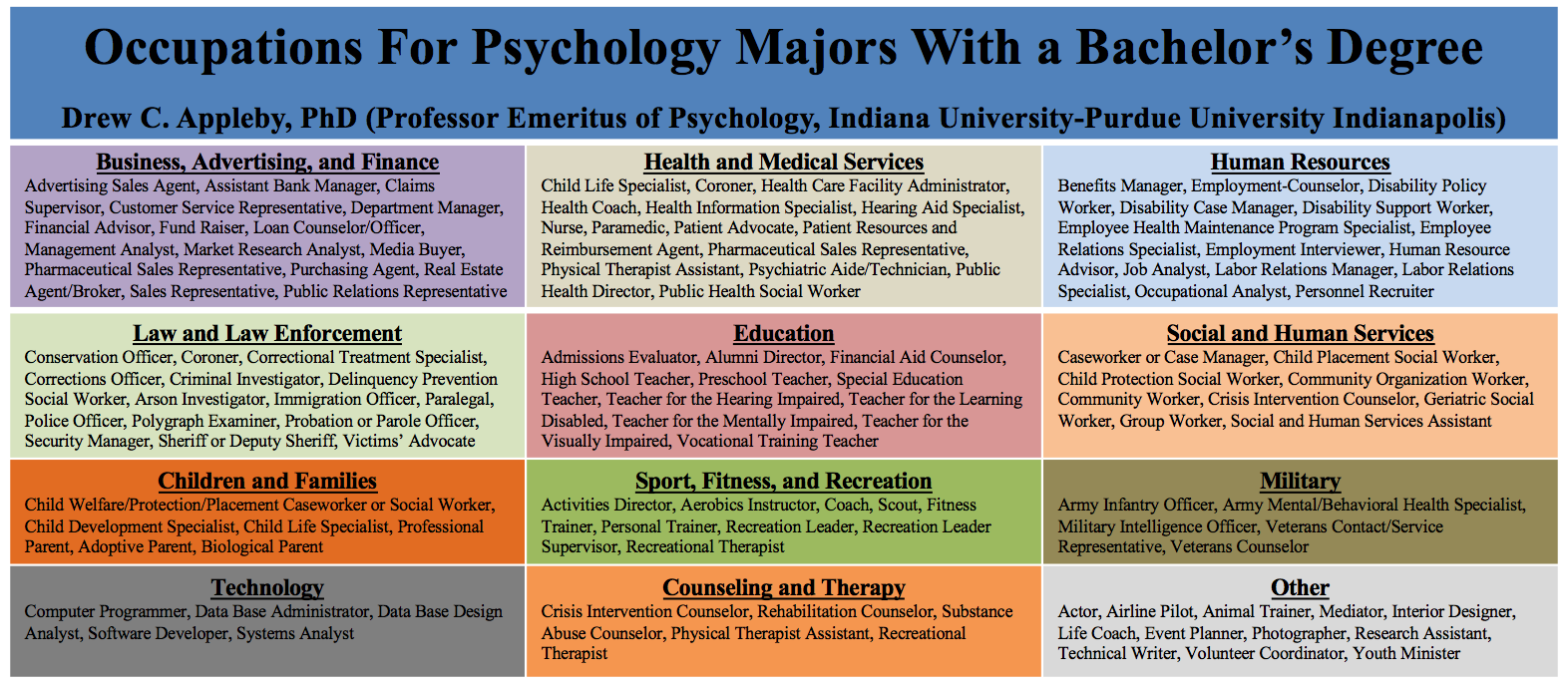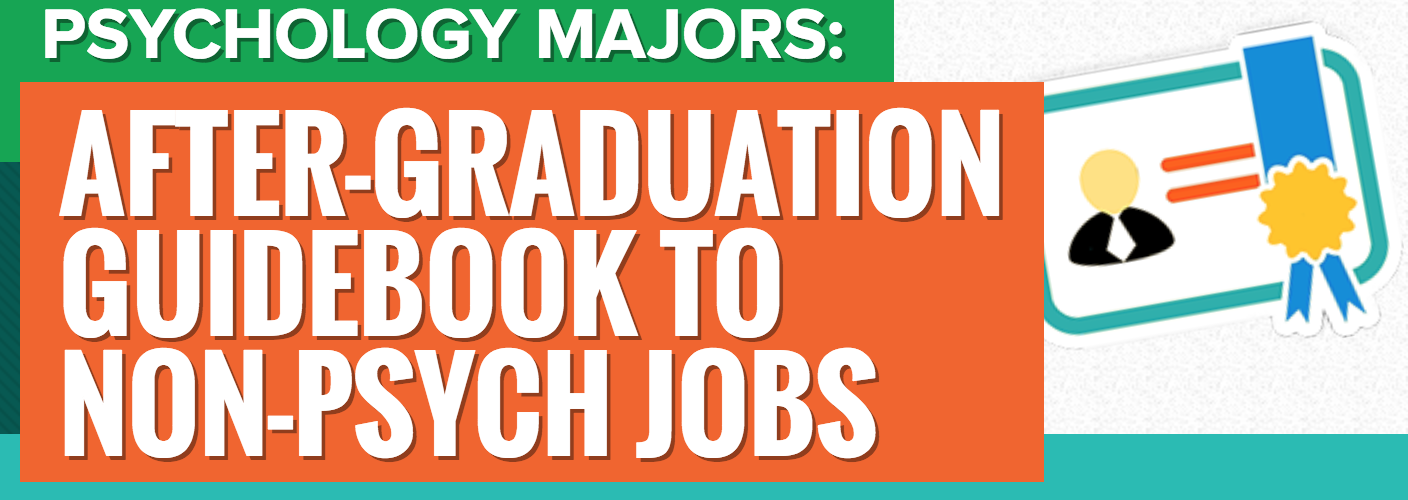Who you are and what you want out of life are major factors in what career is right for you, and whether you will take satisfaction from your job. What is your personality? What are your life goals – for personal satisfaction, for impact on the world, and for income? What do you want each day of your life to be like - sitting at a desk or moving about, meeting new people or seeing familiar faces?
A psychology degree is incredibly flexible; there are career options in counseling psychology, business, forensic psychology, education and coaching, research, science journalism, and more. Explore a wide range of jobs, to find the one or two that speak to you the most.
Learn About Careers

The jobs in the graph above - all 280 of them - are featured in Drew Appleby's online career-exploration resource for psychology majors (Word document). Each job can be explored through resources such as YouTube videos, interviews, and government websites that provide information about the career.
They resources also contain links to job descriptions on O*Net Online, which provides detailed information on the skills and qualifications required, tasks completed each day, recommended work styles and backgrounds, and wages.
Some additional resources to explore career options and help identify some that seem right for you:

The American Psychological Association's Careers in Psychology handout (a .pdf file) identifies a dozen different careers, discusses job outlooks, and provides essays from professionals in a variety of jobs.

Affordable Colleges Online's Psychology Careers page provides a summary of popular careers, with their certification requirements and job outlooks, and includes links to some job boards where you can see the postings for open psychology jobs.

Learn Psychology's Psychology Major Guidebook includes information on non-psychology jobs, such as social work, management, and health care, that use the skills of a psychology major.
Informational Interviews
If you've found a career that intrigues you on paper, it's time to learn more from someone actively participating in that career path. Try an "informational interview", where you ask for 10-15 minutes of someone's time for you to ask questions about what their job is like, and what advice they would give to someone hoping to get a similar job. If this seems strange and unfamiliar, work through a tutorial on informational interviews to prepare yourself.